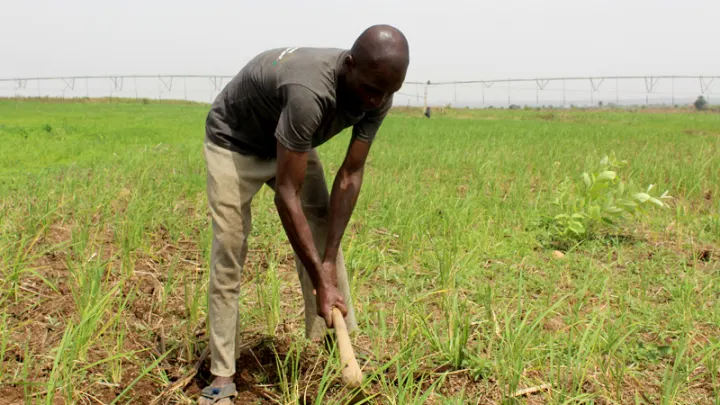By Atoyebi Nike
The Federal Ministry of Agriculture and Food Security (FMAFS), in partnership with the German Agency for International Cooperation (GIZ), has introduced a nationwide plan to enhance soil health, boost agricultural output, and raise farmers’ incomes.
Unveiled at a high-level workshop in Abuja, the Nigerian Soil Information System (NSIS) will serve as a digital platform offering detailed soil data to help farmers make informed decisions on crop selection, fertilizer application, and irrigation methods. Minister of State for Agriculture, Senator Dr. Aliyu Sabi Abdullahi, said the project will unite government bodies, private sector players, farmers, researchers, and development partners to share expertise and resources for sustainable farming.
As part of the strategy, the Nigerian Farmers’ Soil Health Scheme (NFSHS) will provide crop- and site-specific fertilizer recommendations aimed at reducing pollution, cutting greenhouse gas emissions, and promoting climate-smart, regenerative practices. The plan also includes the establishment of 774 soil laboratories to give farmers nationwide access to testing services.
Additional components involve precision agriculture through a Digital Precision Agricultural Extension (E-Extension) platform, real-time market and climate data, and collaboration with the Nigerian Meteorological Agency (NiMET) for seasonal forecasts and early warning systems. Abdullahi added that mechanization, climate-resilient seeds, and training for youth and women are central to the initiative.
Director of Agricultural Land and Climate Management Services, Olanipekun Oshaiya, said digitized soil data is critical to closing Nigeria’s nutrient gap, achieving food security, and safeguarding the environment.
